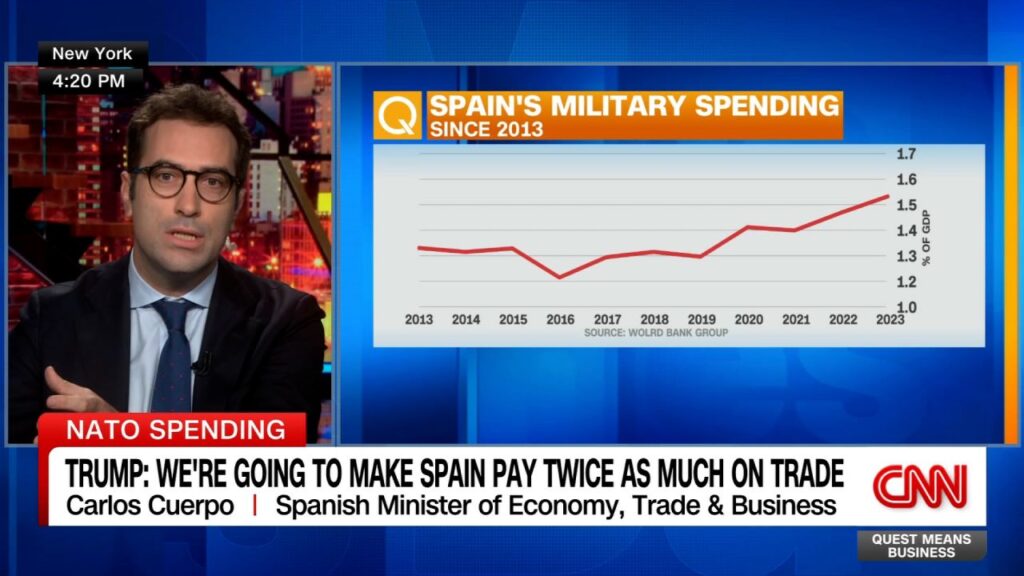“Spain will be a reliable partner with NATO, and we will pay our fair share,” declared Spanish Economy Minister Carlos Cuerpo, affirming the country’s commitment to meeting the new NATO defense spending targets. This announcement comes as NATO continues to emphasize the importance of equitable financial contributions from all member states.
The statement from Minister Cuerpo underscores Spain’s dedication to strengthening its role within the alliance. This commitment aligns with NATO’s recent push for member countries to allocate at least 2% of their GDP to defense spending, a target that has been a point of contention among some European nations.
Historical Context of NATO Spending
Historically, NATO has faced challenges in ensuring that all member nations contribute fairly to the collective defense budget. The 2% GDP target was first agreed upon at the 2014 Wales Summit, following Russia’s annexation of Crimea, which highlighted the need for a robust and responsive alliance.
Since then, several member states have struggled to meet this benchmark, leading to calls for increased defense spending amid growing global security threats. Spain, traditionally a moderate spender on defense, has now signaled its willingness to align more closely with NATO’s financial expectations.
Implications for Spain’s Economy
Minister Cuerpo’s announcement indicates a potential shift in Spain’s budgetary priorities. Meeting the 2% GDP target will require significant increases in defense spending, which could impact other areas of the national budget. However, Cuerpo emphasized that this move is essential for maintaining Spain’s security and international standing.
Economists have noted that while increased defense spending could strain public finances, it may also stimulate economic growth through defense-related industries. This dual impact presents both challenges and opportunities for Spain’s economy.
Expert Opinions on NATO’s Strategy
Experts in international relations have weighed in on Spain’s decision. Dr. Elena Martínez, a senior analyst at the European Council on Foreign Relations, stated,
“Spain’s commitment to the NATO spending target is a significant step in ensuring the alliance’s readiness and cohesion in the face of evolving threats.”
Meanwhile, some critics argue that the focus on defense spending diverts resources from pressing domestic issues such as healthcare and education. However, proponents believe that a stronger defense posture is essential for long-term stability.
Looking Ahead: Spain’s Role in NATO
The move represents a broader trend among European nations to bolster their defense capabilities. As geopolitical tensions continue to rise, particularly with the ongoing conflict in Ukraine and increasing cyber threats, NATO’s collective security strategy remains crucial.
Spain’s commitment to meeting the NATO spending target is expected to enhance its influence within the alliance, potentially leading to a more significant role in strategic decision-making processes. This development follows similar commitments from other European countries, reflecting a unified approach to global security challenges.
As Spain prepares to implement these changes, the government will need to balance defense spending with domestic priorities. The coming months will be critical in determining how these financial commitments will shape the nation’s economic and political landscape.
In conclusion, Spain’s pledge to meet NATO’s defense spending target marks a pivotal moment in its international relations strategy. As the country navigates this new commitment, the implications for both its economy and its role within NATO will be closely watched by analysts and policymakers alike.



